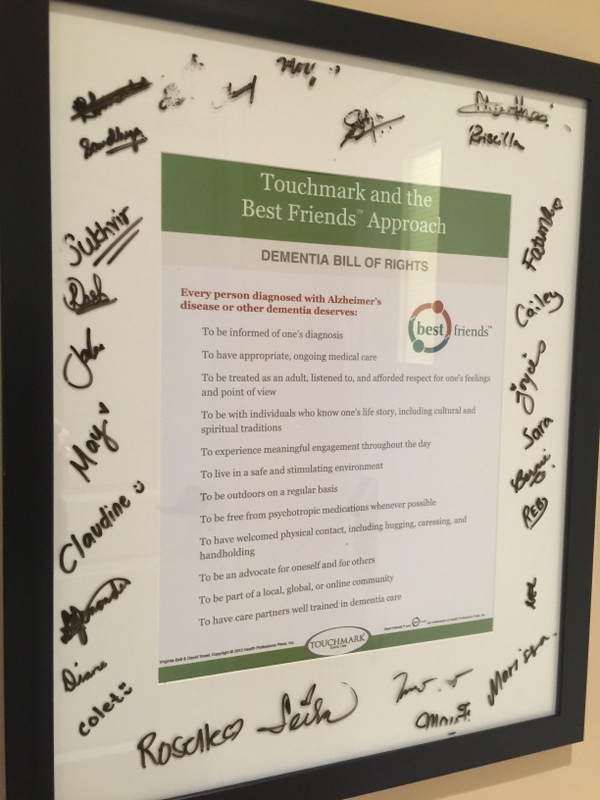Human Rights Day—celebrated December 10 each year—has us thinking about 1994, when we first thought about a Dementia Bill of Rights.
Awareness of Alzheimer’s Disease was low. Awareness of the other dementias was non-existent. Stigma and fear were high! People were skeptical about our approach. Take care of someone with dementia by being a friend? Tell people with dementia about their diagnosis? Ridiculous!
We needed a succinct summary of our ideas, something that would help us reframe the discussion around dementia care—so we put our heads together and came up with the Alzheimer’s Bill of Rights.
Published in the American Journal of Alzheimer’s Care and Related Disorders and Research, the Bill of Rights went “viral” very quickly. The idea that even people with dementia had rights was pretty radical for its time, but the field was ready to consider a new view of dementia. In fact, Dr. Lilia Mendoza, a founder of Alzheimer Mexico has said that “Virginia and David were the first to cast dementia care as a human rights issue.”
One measure of how times have changed since the first Bill of Rights came out: in 1994, the idea of telling someone of their dementia diagnosis was controversial. Now it’s accepted medical practice, and we have moved on to new controversies in caregiving.
Today the Best Friends™ Dementia Bill of Rights captures the ideas of people with dementia themselves. “When we wrote the first Bill of Rights, we didn’t realize back then that persons with dementia could advocate for themselves,” says Virginia. “We were thinking that care partners and family members would do that. Talking to people with dementia changed our minds and now the Bill of Rights says that people with dementia have the right ‘to be an advocate for oneself and others.’”
The right “to be part of a local, global or online community” is a plank today, because people with dementia told us they wanted to stay engaged in their community and do things to help others.
And finally, there’s language about being “afforded respect for one’s feelings and point of view”, because even people very late in the disease will let you know whether they like or dislike something and are comfortable or not.
Virginia’s folder of translations of the original Best Friends Alzheimer’s Bill of Rights includes copies in Portuguese, Finnish, Swedish, Greek, Japanese, Cantonese, Korean, Arabic, Spanish, Romanian German, Mandarin and Italian. “These are just the ones they sent to me!” she says.
We’re so very, very grateful that our colleagues around the world have traveled this journey with us to support and advocate for the best life for persons with dementia. Happy Human Rights Day!
The Best Friends™ Dementia Bill of Rights
Every person diagnosed with Alzheimer’s Disease or other dementia has the right:
- to be informed of one’s diagnosis
- to have appropriate, ongoing medical care
- to be treated as an adult, listened to, and afforded respect for one’s feelings and point of view
- to be with individuals who know one’s Life Story, including cultural and spiritual traditions
- to experience meaningful engagement throughout the day
- to live in a safe and stimulating environment

